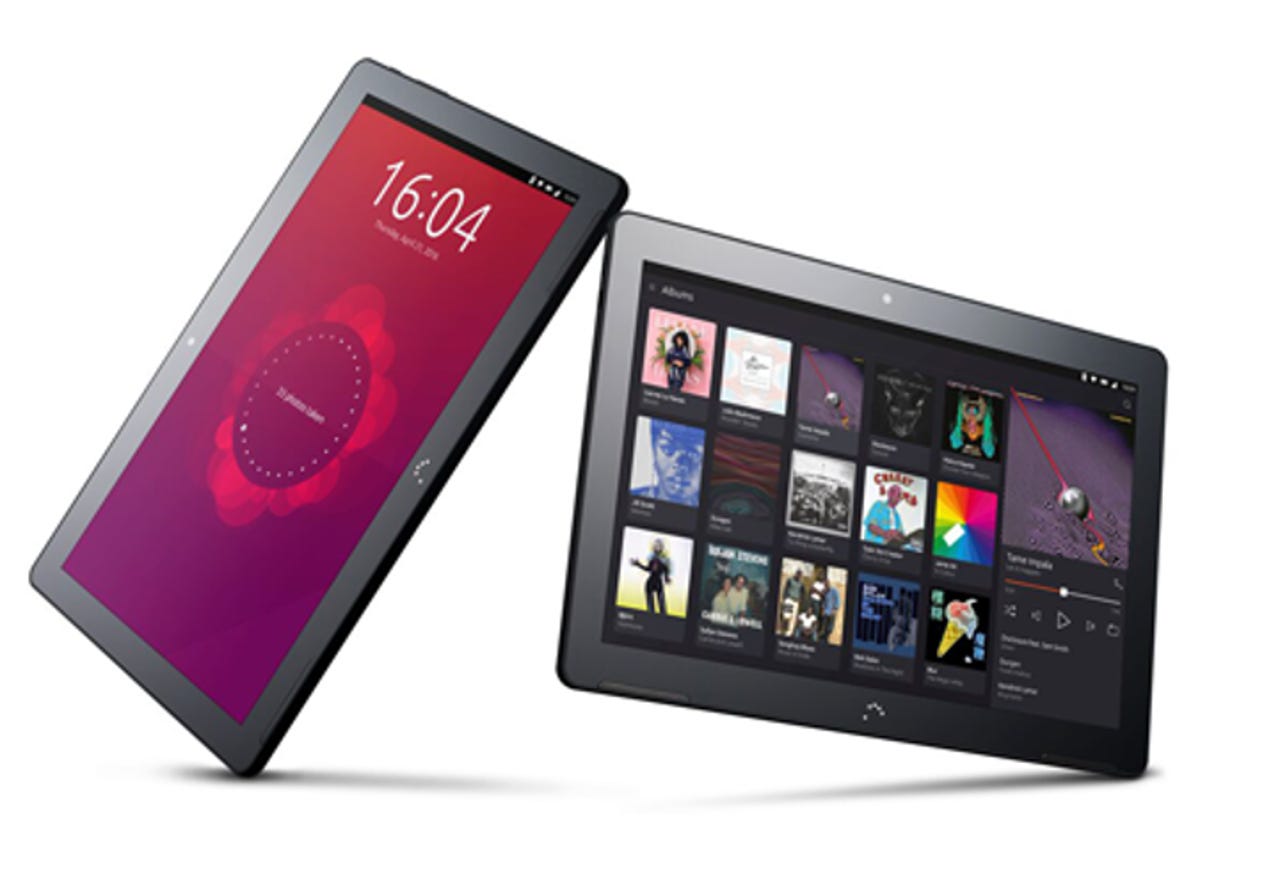Here comes the first Ubuntu Linux tablet

Back in 2010, I was one of the first people to get my hands on Ubuntu Linux's new Unity PC interface. Back then I wrote, "Unity is not just a desktop interface though. It's also Ubuntu's one master interface for desktops, netbooks, and someday, tablets." That day has come.

It took a while, but the first Ubuntu Linux-powered tablet--the Aquaris M10 Ubuntu Edition tablet--is here.
On February 4th, Canonical announced its launch of the first Ubuntu tablet: the Aquaris M10 Ubuntu Edition tablet. This tablet will be available in March through BQ's online store,
It will have the following specs:
10.1 inch touchscreen with 1080p video
- MediaTek quad-core MT8163A 1.5GHz processor
- 2GB RAM
- 16GB internal storage, approximately 11GBs is available for use
- MicroSD slot (up to 64GB)
- 802.11n Wi-Fi, Bluetooth 4.0, GPS, FM Radio
- 8-megapixel camera with autofocus and dual flash
- Front mounted speakers
- Micro HDMI port
- 7,280mAh Li-Po battery
Built by the Spanish OEM BQ, the 10-inch M10 is the first Ubuntu tablet. There are already Ubuntu smartphones such as the Aquaris E4.5 and E5 HD smartphones and China's Meizu MX4 smartphone.
Pricing has not been announced yet. Sources tell me though to expect it to cost 230 Euros or $260.
While the tablet sounds nice in its own right, it also features a dynamically adaptive user experience. In short it can give you both a true tablet experience and the full Ubuntu desktop experience. In other words, you can use it as a tablet, or with an HDMI monitor and a Bluetooth mouse and keyboard as a PC. That sounds great to me.
Canonical has been working towards this goal of one operating system and one interface for all devices for years. It's finally here.
In a statement, Jane Silber, Canonical CEO said:
We're bringing you everything you've come to expect from your Ubuntu PC, now on the tablet with BQ, soon on smartphones. This isn't a phone interface stretched to desktop size - it's the right user experience and interaction model for the given situation. Also, in terms of applications, we have something no other OS can provide: A single, visual framework and set of tools for applications to run on any type of Ubuntu smart device.
In an interview, Silber explained, that the Aquaris M10 runs the same code at the Ubuntu smartphones and desktop operating system. The interface automatically changes for your device. So, when you use it as a tablet, it has the Unity tablet look and feel. Connect it with a monitor, keyboard, and mouse, and you get the PC interface.
Just add monitor, jeyboard and mouse and the new Ubuntu tablet can work as a PC.
Silber continued, "We're not out to win the tablet market. We want to win the reinvention of the PC experience. Today, the PC, tablet and smartphone markets are not really different things. It's what we're doing on our devices that's important. By providing one code base for all devices, our view of convergence will make it easier to deal with blurring of form factors." She added that OEMs and programmers will be able to create customized interfaces and applications with the fragmentation that has bedeviled the Android market.
Canonical is on to something. Today, I work on my smartphone, a Samsung Galaxy 5; my tablet, a 2013 Nexus 7; and multiple PCs. It would be great if I could work with the same programs in fundamentally the same way on each of them. Android devices have multiple annoying differences between OEM versions and little desktop presence. Windows is desktop bound; its smartphone and tablet efforts have failed. And, Apple's Mac OS X and iOS are really different operating system that happen to be running on parallel tracks. While users don't care, Silber pointed out that for companies supporting a single operating system across platforms would make end-point management much easier.
I've said for a while now that we won't have a year of the Linux desktop. But, what we will have -- already have really thanks to Android's domination of smartphones and tablets -- is a year where more users use Linux than any other operating system. The Canonical Ubuntu universal system for all devices may well prove to be another large step in that direction.
Related Stories: